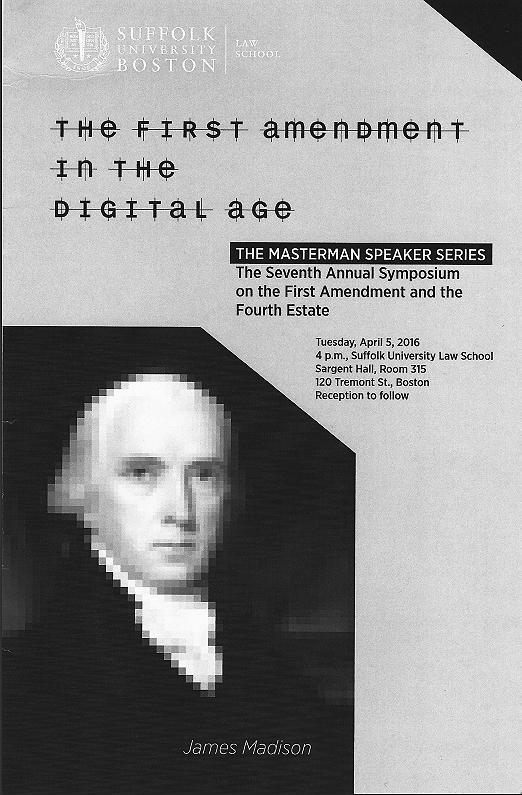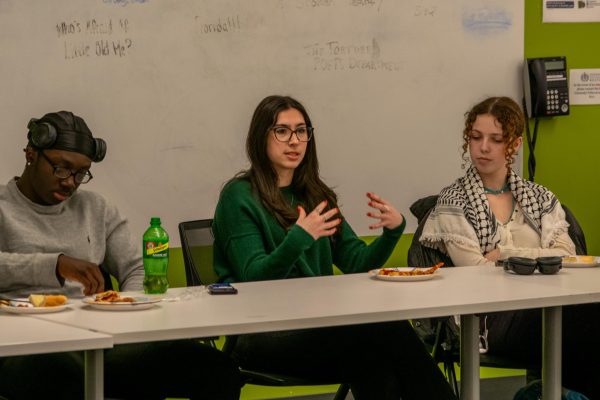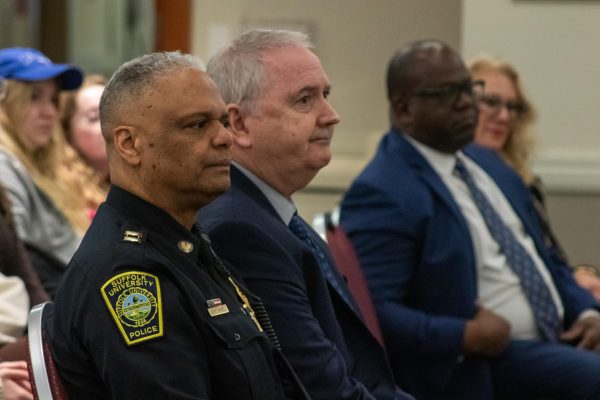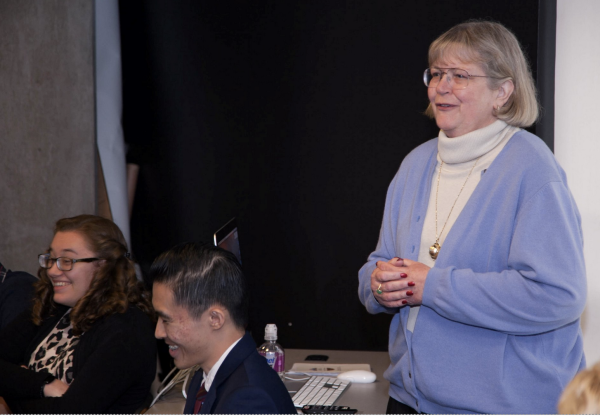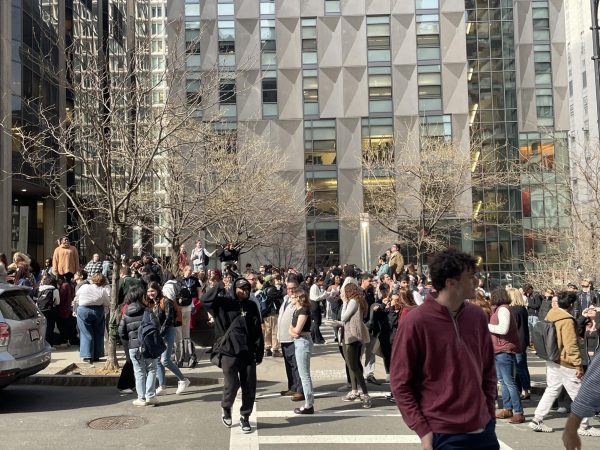First Amendment on the Internet: Flaws, complications and changes
April 6, 2016
Experts in litigation came together at Suffolk University’s Law School to discuss the limitations of the First Amendment in the scope of the constantly-evolving landscape of our newfound digital age, focusing on the “Fourth Estate,” a term used to describe the influential yet ambiguous forum of online information sharing.
The series, founded by Edward L. Masterson, JD ’50, LLD ’90 and his wife Sydell, was created to provide an open dialogue about the responsibilities of the press during the age of the Internet. In the past, the series has invited government representatives, legal professionals, and members of the press to discuss issues that are prevalent when dealing with freedom in cyberspace.
Jon Albano, a partner at Morgan Lewis, LLP, specializes in representing newspapers, broadcasters, and publishers in cases that call into question free speech rights, defamation and the access of information.
The lawyer has been thrust into the public eye recently with the Oscar-winning film Spotlight, based on his work with The Boston Globe to acquire documents that condemned the countless Catholic priests who were sexually abusing minors all over the greater Boston area.
“It would have come out a lot differently if, in 2002, there was as much available information as there is today,” said Albano.
He explained that he has received countless phone calls from colleagues following the film’s premiere.
He went on to discuss the fine line that the Globe walked after acquiring the unverified information on the numerous priests who were suspected of sexual abuse.
“The Globe paid for the information to be put on compact discs,” said Albano. “If you’re handing out discs that have information that has not been verified to spread all over the world, that’s not good,” he said.
He explained that the Internet, which has made the spread of information exponentially easier, must be carefully considered when potentially harmful information is acquired.
Daphne Keller, director of Intermediate Liability at the Stanford Center for Internet and Society, addressed censorship and the issues surrounding Google’s removal of information, a result of information flagged and deemed inappropriate by moderators or viewers. She explained that nearly 82.5 million pieces of information on Google are given notices of removal every month, and about one out of 14 notices are due to online competition.
To demonstrate the difficulties of this situation, Keller referenced a case involving three Massachusetts girls who were exploited into child sex trafficking on Blackpages.com in the advertisement section.
“It’s a huge issue,” said Keller. “It’s almost impossible for intermediaries to view every advertisement,” she said, explaining that content in published online articles can be moderated much more easily than advertisement sections or comment pages.
Shifting toward censorship in the courtroom, the case of The United States v. Alexander Ciccolo accentuated how the Internet has changed the way the court handles information. Ciccolo, who took the name Ali Al Amriki, was arrested for possession of firearms and was believed to be connected to ISIS. During police interviews, he expressed his commitment to ISIS’s cause.
“He really believed ISIS would bring a better world,” said Albano. “He said that the group never killed babies or children, unless they had to.”
He explained that the court decided to have his interrogation video censored by covering Ciccolo’s face with a large blue dot.
“We believe that if this video was public with the defendant’s face, it would be an extremely effective recruitment tool for ISIS,” explained Albano.
Countless other case studies were examined, and while the speakers generally agreed that there is no singular solution to the introduction of the Internet in relation to the press, they did provide numerous examples of how to cope with the increased accessibility of information.
“The remedy is legislation, not litigation; it isn’t about policy, it’s about politics,” said Keller. “The question is how much we want to promote expression while maintaining privacy.”


